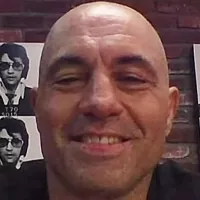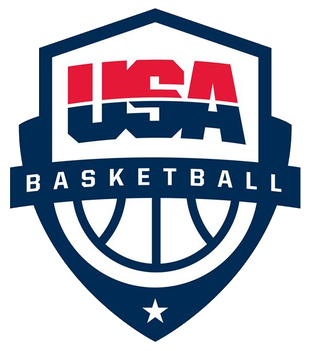The Oakland Athletics were a Major League Baseball team based in Oakland, California, from 1968 to 2024, playing at the Oakland Coliseum. As a member of the American League West Division, they achieved significant success, holding nine World Series championships, fifteen pennants, and seventeen division titles. Their accomplishments are second only to the New York Yankees in the AL.
1910: Philadelphia Athletics won World Championships
In 1910, the Philadelphia Athletics won World Championships.
1911: Philadelphia Athletics won World Championships
In 1911, the Philadelphia Athletics won World Championships.
1913: A's defeated the Giants in the World Series
In 1913, the A's defeated the Giants in the World Series.
1913: Philadelphia Athletics won World Championships
In 1913, the Philadelphia Athletics won World Championships.
1922: Established antitrust exemption
In 1922, the U.S. Supreme Court established baseball's antitrust exemption.
1929: Philadelphia Athletics won World Championships
In 1929, the Philadelphia Athletics won World Championships.
1930: Philadelphia Athletics won World Championships
In 1930, the Philadelphia Athletics won World Championships.
1930: World Series Championship
The Oakland A's seven-game victory over the heavily favored Reds gave the team its first World Series Championship since 1930.
1931: First 100-Win Season
In 1931, the Oakland A's had their first 100-win season since finishing 107–45.
1953: Antitrust exemption upheld
In 1953, the antitrust exemption was upheld.
1954: 1954 Jerseys
From 1954 to 1960, the script "Athletics" adorned home and road jerseys.
1954: Arnold Johnson Buys and Moves the Athletics
In 1954, Arnold Johnson purchased the Athletics and moved the team from Philadelphia to Kansas City, Missouri.
1954: Athletics Move to Kansas City
In 1954, the Athletics relocated from Philadelphia to Kansas City.
1960: 1960 Jerseys
From 1954 to 1960, the script "Athletics" adorned home and road jerseys.
1961: Finley Seeks New Home for Athletics
From 1961, Charlie Finley started looking for a new home for the Athletics, considering cities such as Dallas–Fort Worth, Louisville, Atlanta, Milwaukee, New Orleans, San Diego, and Seattle.
January 1964: Move to Louisville Rejected
In January 1964, Charlie Finley signed an agreement to move the A's to Louisville and rename them the "Kentucky Athletics," but American League owners rejected the move by a 9–1 vote on January 16.
February 1964: Lease Agreement Signed with Municipal Stadium
In February 1964, Charlie Finley signed a four-year lease with Municipal Stadium after the AL owners denied his request to move the team to Oakland.
October 11, 1967: Finley Announces Oakland as New Home
On October 11, 1967, during the World Series, Charlie Finley announced that Oakland would be the new home for the Athletics, choosing it over Seattle.
1967: Near-Mutiny and Harrelson's Release
In 1967, a near-mutiny occurred, leading to Charlie Finley releasing the A's best hitter, Ken Harrelson, who subsequently signed with the Red Sox.
April 10, 1968: Oakland A's Inaugural Game
On April 10, 1968, the Athletics' Oakland tenure began with a 3–1 loss to the Baltimore Orioles.
April 17, 1968: First Game in Oakland
On April 17, 1968, the Athletics played their first game in Oakland, a 4–1 loss to the Baltimore Orioles, at the Oakland–Alameda County Coliseum.
May 8, 1968: Jim "Catfish" Hunter Pitches Perfect Game
On May 8, 1968, Jim "Catfish" Hunter pitched a perfect game against the Minnesota Twins, marking the American League's first perfect game during the regular season since 1922.
1968: Average home attendance from 1968 to 1980
From 1968 to 1980, the average home attendance for the Oakland A's was 777,000 per season during the Finley era.
1968: Oakland Finishes Sixth
In 1968, despite finishing in sixth place, Oakland Athletics had the best record of the four established teams to join the AL West.
1968: Athletics Move to Oakland
In 1968, the Athletics moved from Kansas City to Oakland, where they became a successful team, winning four World Series championships.
1968: Oakland A's Inaugural Season
In 1968, the Oakland Athletics relocated from Kansas City to Oakland, California, marking the start of their tenure in Oakland.
1968: AL Owners Approve Move to Oakland
On October 18, 1967, American League owners granted Charlie Finley permission to move the Athletics to Oakland for the 1968 season.
July 20, 1969: Vida Blue's MLB Debut
On July 20, 1969, future ace Vida Blue made his major league debut with a start against the California Angels.
1969: Finley Threatens to Send Jackson to Minors
In 1969, after Reggie Jackson hit 47 homers, Charlie Finley threatened to send Jackson off to the minors, leading to Commissioner Bowie Kuhn's intervention in their contract dispute.
1969: Charter membership in AL West
In 1969, the Oakland Athletics were a charter member of the AL West.
1970: McNamara Fired
After an 89-73 finish in 1970, John McNamara was fired and replaced by Dick Williams as manager.
1971: A's Claim Division Crown
In 1971, the Athletics claimed the division crown after two consecutive second-place finishes, winning 101 games but losing to the Baltimore Orioles in the American League Championship Series.
1972: Team Name Officially Changed to "Oakland A's"
From 1972 through 1980, the team name was officially "Oakland A's" after owner Charlie O. Finley banned the word "Athletics".
1972: Radical Uniforms and Moustache Day Promotion
In 1972, the A's began wearing solid green or gold jerseys with white pants, considered a radical departure at the time. A Moustache Day promotion offered $300 to any player who grew a moustache by Father's Day, defying the clean-shaven norms of other teams.
1972: A's Win League Pennant
In 1972, the Athletics won their first league pennant since 1931 and faced the Cincinnati Reds in the World Series.
1972: Antitrust exemption upheld
In 1972, the antitrust exemption was upheld.
1973: Controversy Over Mike Andrews
In 1973, during the World Series against the New York Mets, Charlie Finley forced Mike Andrews to sign a false affidavit after Andrews committed errors, leading to public outcry and Commissioner Kuhn's intervention. However, Andrews was benched for the remainder of the Series, never playing another major league game.
December 13, 1974: Catfish Hunter Becomes Free Agent
On December 13, 1974, arbitrator Peter Seitz ruled in favor of Catfish Hunter's grievance, making him a free agent due to the team's failure to make timely payment on an insurance policy during the 1974 season.
1974: Finley Relents on Williams
Charlie Finley relented in 1974 and allowed Dick Williams to take over as manager of the California Angels, after initially vetoing Williams' attempt to manage the Yankees due to contractual obligations with Oakland.
1975: A's Lose ALCS to Boston
In 1975, despite losing Catfish Hunter, the A's repeated as AL West champions but lost the ALCS to Boston in a 3-game sweep.
1975: Highest Attendance Under Finley
In 1975, the Oakland A's had their highest attendance under Finley's ownership, drawing 1,075,518 fans.
June 15, 1976: Finley Sells Star Players
On June 15, 1976, Charlie Finley sold left fielder Joe Rudi and relief pitcher Rollie Fingers to Boston for $1 million each, and pitcher Vida Blue to the New York Yankees for $1.5 million, but Commissioner Bowie Kuhn voided the transactions.
1976: Athletics Veteran Players Eligible for Free Agency
After the 1976 season, most of the Athletics' veteran players became eligible for free agency and left the team.
1977: Finley's Attempts to Trade Vida Blue
In 1977, Charlie Finley attempted to trade Vida Blue to the Reds for a player of lesser stature and cash, but Commissioner Kuhn vetoed the deal. Later, Finley traded Doug Bair to the Reds, and Vida Blue was traded to the San Francisco Giants, both receiving the Commissioner's blessing.
1977: A's Finish with Worst Record in American League
In 1977, just three years after winning the World Series, the A's finished with the worst record in the American League and the second-worst record in baseball.
1978: Louisiana Superdome Pursues Negotiations with the Athletics
During the 1978 baseball offseason, Louisiana Superdome officials pursued negotiations with Oakland Athletics officials about moving the team to New Orleans. The Oakland Athletics were unable to break their lease at the Coliseum, and remained in Oakland.
1978: A's broadcast on KALX
For the first month of the 1978 season, the A's broadcast their games on KALX, a low-powered college radio station that was practically unlistenable more than 10 miles from Oakland.
1978: Near Sale to Denver
In 1978, Finley almost sold the team to buyers who would have moved them to Denver's Mile High Stadium, but the deal fell through because Oakland and Alameda County refused to release the A's from their lease.
1979: Near Sale to New Orleans and Low Attendance
In 1979, Finley nearly sold the team to buyers who would have moved them to the Louisiana Superdome. Only 306,763 fans attended A's games, marking the team's worst attendance since leaving Philadelphia.
1979: Radio Contract Issues and Lawsuit
In 1979, the A's didn't sign a radio contract until the night before opening day. Oakland and Alameda County sued Finley and the A's for breach of contract due to the team's near-invisibility.
1979: Low Attendance and "The Triple-A's" Nickname
In 1979, the Oakland A's experienced extremely low attendance, with an April 17 game against the Mariners drawing an announced crowd of only 653, though some estimated the actual attendance was even lower. The Coliseum's upkeep declined, and the team's rapid deterioration led to the nickname "the Triple-A's".
1979: Oakland A's 1979 Season
In 1979, the Oakland A's had a disastrous season. It was the worst record since then for the team.
1980: Average home attendance from 1968 to 1980
From 1968 to 1980, the average home attendance for the Oakland A's was 777,000 per season during the Finley era.
1980: Team Name Officially Changed to "Oakland A's"
From 1972 through 1980, the team name was officially "Oakland A's" after owner Charlie O. Finley banned the word "Athletics".
1980: Walter A. Haas, Jr. ownership
From 1980, Walter A. Haas, Jr. was the owner of the Oakland A's
1980: Hiring of Billy Martin and "Billyball"
In 1980, Finley hired Billy Martin to manage the young team. Martin implemented "Billyball" to market the team, and the Athletics finished second that season.
1981: Haas Ownership
During the 15 years of Haas' ownership, excluding the strike years of 1981 and 1994, the Athletics became one of baseball's most successful teams on the field.
1981: Sale of Team to Walter A. Haas, Jr.
In 1981, Finley sold the A's to Walter A. Haas, Jr., president of Levi Strauss & Co., after a previous deal to sell the team and move it to Denver fell through due to the Raiders' move to Los Angeles.
1981: Increased Attendance Under Haas
In 1981, during the first year of Haas' ownership, the Athletics drew 1,304,052 fans, despite the season being shortened by a player strike.
1981: Official Name Restored to "Athletics"
In 1981, new owner Walter Haas restored the official name to "Athletics" but retained the nickname "A's" for marketing purposes.
1981: AL Championship Series Loss and League Record
In 1981, the A's lost in the American League Championship Series after winning the "first half" AL West Division title of the strike-interrupted season, finishing with the best record in the American League.
1982: Improvements Made to Coliseum
After the Oakland Raiders moved to Los Angeles in 1982, many improvements were made to what was suddenly a baseball-only facility.
1982: Spring Training Facility
From 1982 to 2014, Phoenix Municipal Stadium was the spring training facility for the Oakland Athletics.
1982: Henderson's Stolen Base Record
In 1982, Rickey Henderson shattered Lou Brock's modern major league record by stealing 130 bases in a single season.
1982: Team Colors Changed to Forest Green
In 1982, after the team's sale to the Haas family, the Oakland Athletics changed their primary color to a more subdued forest green and began a move back to more traditional uniforms.
1982: Team Regression and Martin's Firing
In 1982, the A's significantly regressed, finishing 68–94. Growing concern about Billy Martin's off-field behavior led to his firing after the season.
1985: Last A's Outfielder to Win a Gold Glove
Before Josh Reddick in 2012, the last A's outfielder to win a Gold Glove was in 1985.
1986: José Canseco wins AL Rookie of the Year and La Russa is hired
In 1986, José Canseco was chosen as AL Rookie of the Year, and Tony La Russa was hired as the Athletics' manager.
1987: Word "Athletics" Returns to Jerseys
By 1987, the word "Athletics" returned, in script lettering, to the front of the team's jerseys.
1987: Best Record in Seven Seasons
In 1987, Tony La Russa's first full year as manager, the team finished with an 81–81 record, its best in seven seasons.
1987: Return of "Athletics" Script on Home Jerseys
In 1987, the script "Athletics," which had adorned home and road jerseys from 1954 to 1960, was returned to home jerseys.
1988: Walt Weiss Wins Rookie of the Year and Start of Pennant Streak
In 1988, Walt Weiss was chosen as AL Rookie of the Year. The Athletics also began a streak of winning the AL pennant three years in a row.
1988: Restoration of the Elephant Mascot
In 1988, after a 23-year hiatus, the elephant was restored as the club mascot.
1988: World Series Loss to Dodgers
In 1988, the heavily favored Athletics lost the World Series to the Los Angeles Dodgers.
1989: AL Pennant
In 1989, the Athletics won the AL pennant for the second year in a row, finishing with the best record in the major leagues.
1989: World Series Championship and Loma Prieta Earthquake
In 1989, the Oakland Athletics won their lone World Series championship of the era with a four-game sweep of the San Francisco Giants; however, the Loma Prieta earthquake overshadowed the victory, causing a ten-day delay in the series.
1989: Athletics won their most recent championship
In 1989, the Oakland Athletics won their most recent championship and the first time the teams had met since they moved to the San Francisco Bay Area
1990: Record Attendance
In 1990, the Athletics drew 2,900,217 fans, which remains the club record for single-season attendance.
1990: World Series Loss to Reds
In 1990, the Athletics lost the World Series in a shocking four-game sweep to the Cincinnati Reds.
1990: AL Pennant and Best Record
In 1990, the Athletics won the AL pennant for the third year in a row and had the best record in the major leagues.
May 1, 1991: Henderson Breaks Stolen Base Record
On May 1, 1991, Rickey Henderson broke one of baseball's most famous records when he stole the 939th base of his career, surpassing Lou Brock's record.
1992: AL West Championship and ALCS Loss
In 1992, the Athletics won the AL West championship but lost to Toronto in the ALCS.
1992: Oakland A's Road Cap
Until 1992, the home cap was also the team's road cap.
1993: Denver Gets an MLB Team
In 1993, Denver finally got an MLB team when the Colorado Rockies began play.
1993: Last Place Finish
In 1993, the Athletics finished last in their division.
1993: Oakland A's Road Cap debut
In 1993, the road cap initially debuted, is all-forest green. The first version had the white "A's" wordmark before it was changed to gold the following season.
1994: Haas Ownership
During the 15 years of Haas' ownership, excluding the strike years of 1981 and 1994, the Athletics became one of baseball's most successful teams on the field.
1994: Green Alternate Jerseys Introduced
From 1994 until 2013, the A's wore green alternate jerseys with the word "Athletics" in gold, for both road and home games.
1994: "Angels in the Outfield" Filmed at Coliseum
The 1994 movie "Angels in the Outfield" was filmed in part at the Coliseum, filling in for Anaheim Stadium.
1995: Walter A. Haas, Jr.'s death
In 1995 Walter A. Haas, Jr. passed away and was honored by the retirement of the letter "A".
1995: Raiders Move Back to Oakland
In 1995, the Raiders moved back to Oakland, and the Coliseum was expanded to 63,026 seats, with "Mount Davis" being constructed.
1995: Raiders Return to Oakland and Coliseum Facelift
In 1995, the Raiders returned to Oakland, leading to an $83 million facelift of the Coliseum. Walter Haas also died in 1995.
1995: La Russa's Departure
Tony La Russa held his post as the Athletics' manager until the end of 1995.
1996: Finley died
In 1996, Finley died.
1996: Sale of Team and Payroll Cuts
Prior to the 1996 season, the Athletics were sold to Steve Schott, David Etheridge, and Ken Hofmann. The new owners cut payroll drastically, leading to the trade or sale of star players.
1997: Commencement of interleague play
Since the commencement of interleague play, it also referred to games played between the teams during the regular season since 1997.
1998: Last Season with a Losing Record
The Oakland A's had their last losing record in 1998 until the 2007 season.
1999: Hunter died
In 1999, Hunter died.
1999: Beginning of "Big Three" Era
In 1999, the era of the "Big Three" pitchers (Tim Hudson, Mark Mulder, and Barry Zito) began, helping the Athletics emerge as a perennial powerhouse.
May 29, 2000: Randy Velarde's Unassisted Triple Play
On May 29, 2000, Randy Velarde executed an unassisted triple play against the Yankees, catching a line drive, tagging a runner, and stepping on second base before another runner could return. This was only the 11th unassisted triple play in MLB history.
2000: Giambi Wins MVP
In 2000, Jason Giambi was named American League MVP.
2000: Playoff Appearance
The Athletics made the playoffs in 2000, but lost their first-round series.
2001: Playoff Loss to Yankees
In 2001, the Athletics made the playoffs, lost their first round series 3 games to 2 against the Yankees, becoming the first team to lose a best-of-five series after winning the first two games on the road.
September 4, 2002: Athletics Win 20th Consecutive Game
On September 4, 2002, the Oakland Athletics won their 20th consecutive game against the Kansas City Royals. Despite giving up an 11-0 lead, Scott Hatteberg hit a walk-off home run in the bottom of the 9th inning to secure the 12-11 victory.
2002: 20-game winning streak
During the 2002 season, the A's famous "Moneyball" tactics led them to a league record 20-game winning streak, knocking the Angels out of the first seed in the division.
2002: Tejada Wins MVP and Zito Wins Cy Young
In 2002, Miguel Tejada won the American League MVP Award, and Barry Zito won 23 games and the Cy Young Award.
2002: Moneyball Season and League Best Record
In 2002, with the sixth-lowest payroll in baseball, the Oakland Athletics won an American League best 103 games, showcasing Billy Beane's Moneyball approach.
2002: Moneyball chronicles the Oakland Athletics season
The 2003 Michael Lewis book Moneyball chronicles the 2002 Oakland Athletics season, with a focus on Billy Beane's economic approach to managing the organization under significant financial constraints.
June 2003: Moneyball on The New York Times Best Seller list
Beginning in June 2003, the book Moneyball remained on The New York Times Best Seller list for 18 consecutive weeks, peaking at number 2.
2003: Playoff Loss to Red Sox
In 2003, the Athletics made the playoffs but lost their first-round series to the Red Sox.
2004: A's Trade Tim Hudson and Mark Mulder
After the 2004 season, the Oakland A's traded Tim Hudson to the Atlanta Braves and Mark Mulder to the St. Louis Cardinals. These trades were in line with Billy Beane's business model, and the Mulder trade turned out well for the A's as Dan Haren outperformed Mulder.
2004: Battle for the division championship
During the 2004 season, Oakland and the Angels were tied for wins heading into the final week of September, battling for the division championship.
2004: Bobby Crosby wins AL Rookie of the Year
In 2004, Bobby Crosby won the AL Rookie of the Year award.
2004: Missed Playoffs
In 2004, the A's missed the playoffs, losing the final series of the season to the Anaheim Angels by one game.
March 30, 2005: Athletics Sold to Lewis Wolff Group
On March 30, 2005, the Oakland Athletics were sold to a group led by real estate developer Lewis Wolff, with John J. Fisher as the majority owner. Rumors of a move to San Jose arose due to Wolff's background, complicated by the San Francisco Giants' territorial rights claims.
December 21, 2005: Coliseum Capacity Reduced
On December 21, 2005, the Athletics announced that seats in the Coliseum's third deck would not be sold for the 2006 season.
2005: Huston Street wins AL Rookie of the Year
In 2005, Huston Street was voted the AL Rookie of the Year. This marked the second consecutive year that an Athletics player won the award.
2005: Athletics Overcome Dismal Start to Contend
In 2005, the Oakland Athletics overcame a poor start to the season, where they were in last place on May 31st, to finish with a record of 88-74. They contended for the AL West crown for many weeks.
November 7, 2006: Announcement of potential move to Fremont
On November 7, 2006, news media announced the Athletics would be leaving Oakland as early as 2010 for a new stadium in Fremont.
2006: Last AL West Title Before 2012
Before winning in 2012, the Oakland A's last won the AL West in 2006.
2006: End of Big Three Era
Between 1999 and 2006, the "Big Three" helped the Athletics to emerge into a perennial powerhouse in the American League West, combining for a collective record of 261–131.
2006: Bob Geren Replaces Ken Macha
Following the 2006 season, Bob Geren replaced Ken Macha as the manager of the Oakland A's.
2006: Coliseum Third Deck Not Sold
In 2006, the Athletics announced that seats in the Coliseum's third deck would not be sold for the 2006 season.
2006: A's Return to Postseason, Manager Fired
In 2006, the Oakland A's returned to the postseason after a three-year absence and swept the Minnesota Twins in the ALDS. However, they were then swept by the Detroit Tigers in the ALCS, leading to the firing of manager Ken Macha on October 16, 2006.
2007: A's Sign Mike Piazza
Following the 2006 season, The A's signed Mike Piazza for 2007. Piazza agreed to become a full-time DH for the first time in his career.
2007: A's Suffer Losing Season Due to Injuries
The 2007 season was disappointing for the Oakland A's due to injuries to key players like Rich Harden, Huston Street, Eric Chavez, and Mike Piazza. They finished with a losing record for the first time since 1998.
2008: Limited Third-Deck Seating
Beginning in 2008, sections 316–318 were the only third-deck sections open for A's games, bringing the total capacity to 35,067.
2008: A's Trade Key Players, Sparking Controversy
During the 2008 off-season, the Oakland A's traded Dan Haren, Nick Swisher, and Mark Kotsay, leading to fan anger and media criticism. Despite being considered a rebuilding team, the A's performed well into late May.
2008: A's Re-Sign Frank Thomas and Make Trades
In 2008, the Oakland A's re-signed Frank Thomas on April 24th, traded Rich Harden and Chad Gaudin to the Chicago Cubs on July 8th, and traded Joe Blanton to the Philadelphia Phillies on July 17th. They finished the season with a 75-86 record.
2008: Oakland A's Road Cap matched with batting helmet
Until 2008, an all-forest green batting helmet was paired with the Oakland A's road cap.
January 6, 2009: Jason Giambi signs with the A's
On January 6, 2009, Jason Giambi signed a one-year, $4.6 million contract with the Oakland A's. Giambi stated he was glad to be back and donned his old number 16.
February 24, 2009: End of relocation efforts to Fremont
On February 24, 2009, Lew Wolff announced the end of his efforts to relocate the A's to Fremont, citing delays to the project.
December 22, 2009: Billy Beane Named a Top GM of the Decade
On December 22, 2009, Sports Illustrated recognized Billy Beane as number 10 on its list of the Top 10 General Managers/Executives of the Decade across all sports.
2009: San Jose attempts negotiations
In 2009, the City of San Jose attempted to open negotiations with the Oakland Athletics team regarding a move to the city.
2009: A's Trade Brett Wallace, Sign Ben Sheets
In 2009, the Oakland A's traded Brett Wallace to the Toronto Blue Jays for Michael Taylor and signed Ben Sheets to a one-year deal. The team began the regular season with two walk-off wins.
September 2010: Silicon Valley CEOs urge approval of move to San Jose
In September 2010, 75 Silicon Valley CEOs drafted and signed a letter to Bud Selig urging a timely approval of the Oakland Athletics move to San Jose.
2010: Dallas Braden Throws No-Hitter
Dallas Braden threw a no-hitter for the Athletics in 2010, marking the first no-hitter for the franchise since then.
2010: Oakland A's Finish 2nd in Division
In 2010, the Oakland A's finished the season with an 81-81 record, placing 2nd in the division, nine games behind the Texas Rangers and one game ahead of the Los Angeles Angels.
2010: Possible relocation to Fremont
In 2010, the Oakland Athletics were considering a possible relocation to Fremont.
May 2011: San Jose Mayor requests timetable from Bud Selig
In May 2011, San Jose Mayor Chuck Reed sent a letter to Bud Selig asking for a timetable on deciding whether the A's could pursue a new ballpark, but Selig did not respond.
July 2011: Bud Selig addresses San Jose issue
In July 2011, Bud Selig addressed the San Jose issue via an online town hall forum, stating that a committee was assessing the situation and a decision would be made based on logic and reason.
September 19, 2011: U.S. Premiere of Moneyball
On September 19, 2011, the U.S. premiere of the film adaptation Moneyball was held at the Paramount Theatre in Oakland, with a green carpet for attendees.
2011: A's Finish 3rd in Division
In 2011, the Oakland A's finished the season with a 74-88 record, placing 3rd in the division, 22 games behind the Texas Rangers. Pitcher Rich Harden returned on a one-year deal, and Hideki Matsui was signed as a DH on a one-year deal.
2011: Black Alternate Jersey Retired in Favor of Gold Alternate Jersey
The black alternate uniform was retired in 2011 in favor of a gold alternate jersey, after a brief discontinuance and comeback during the 2000s.
2011: Athletics Gold Uniforms
With the exception of several road games during the 2011 season, the Athletics' gold uniforms were used as the designated home alternates.
2012: Bob Melvin Named AL Manager of the Year
In 2012, Bob Melvin was awarded the AL Manager of the Year award, and Josh Reddick won a Gold Glove.
2012: A's Clinch AL West Title
In 2012, despite low expectations and trading away key players, the Oakland A's clinched the AL West title for the first time since 2006. They swept the Texas Rangers in a season-ending series but lost to the Detroit Tigers in the ALDS.
June 18, 2013: San Jose files suit against Selig
On June 18, 2013, the City of San Jose filed suit against Bud Selig, seeking the court's ruling that Major League Baseball may not prevent the Oakland A's from moving to San Jose.
October 2013: Dismissal of claims in San Jose lawsuit
In October 2013, most of the City of San Jose's claims in their lawsuit were dismissed, but a judge ruled that San Jose could move forward with its claim that MLB illegally interfered with a land agreement between the city and the A's.
2013: A's Claim Second Straight Division Title
In 2013, the Oakland Athletics, under manager Bob Melvin, secured their second consecutive division title with a 96-66 record. However, they lost Game 5 of the ALDS to the Detroit Tigers for the second straight season.
2013: Opening of new span of the Bay Bridge
In 2013, the new span of the Bay Bridge was opened.
2013: Green Alternate Jerseys Discontinued
Until 2013, the A's wore green alternate jerseys with the word "Athletics" in gold, for both road and home games.
September 2014: Tribute to Eric the Actor
Following Eric the Actor's death in September 2014, the Oakland Athletics broadcasters paid tribute by using his signature sign off "bye for now" at the end of a game broadcast.
2014: Green version of gold alternate
A green version of their gold alternates was introduced for the 2014 season, serving as a replacement to the previous green alternates. The new green alternates featured the piping, "A's" and lettering in white with gold trim.
2014: Spring Training Facility
From 1982 to 2014, Phoenix Municipal Stadium was the spring training facility for the Oakland Athletics.
2014: Oakland A's Road Cap wordmark update
In 2014, the "A's" wordmark returned to white but added gold trim on the Oakland A's road cap.
January 15, 2015: Court rules claims barred by baseball's antitrust exemption
On January 15, 2015, a three-judge panel ruled unanimously that San Jose's claims against MLB were barred by baseball's antitrust exemption.
October 5, 2015: Supreme Court rejects San Jose's case
On October 5, 2015, the United States Supreme Court rejected San Jose's case against Major League Baseball regarding the Oakland A's potential move to San Jose.
2015: A's Finish Last Place Again
In 2015, the A's finished in last place with a 69-93 record. Khris Davis had a breakout season with 42 home runs. Sean Manaea and Liam Hendriks also became key players.
November 2016: Lewis Wolff Sells Stake in Athletics
In November 2016, Lewis Wolff sold his 10% stake in the Oakland Athletics to John J. Fisher, who became the full owner. Wolff became the chairman emeritus.
September 2017: Announcement of plan for a new stadium near Laney College
In September 2017, the Oakland Athletics announced a plan to place a new 35,000 seat stadium near Laney College.
2017: Upper Deck Tarps Removed
In 2017, new team president Dave Kaval took the tarps off of the upper deck, increasing capacity to 47,170.
2017: Oakland A's in the playoffs
In 2017, the Oakland A's were in the playoffs, before missing them in 2021.
2017: Creation of an outdoor plaza
In 2017, the Oakland Athletics created an outdoor plaza between the Coliseum and Oracle Arena with food trucks, seating, and games for ticketed fans.
March 24, 2018: Differential parking prices for exhibition game
On March 24, 2018, the Oakland A's announced that for the Sunday, March 25, 2018, exhibition game against the San Francisco Giants, A's fans would be charged $30 for parking and Giants fans would be charged $50.
March 25, 2018: Exhibition game against San Francisco Giants
On March 25, 2018, the Oakland A's played exhibition game against the San Francisco Giants.
April 17, 2018: First free game in MLB history
On April 17, 2018, the Oakland Athletics held the first free game in MLB history for 46,028 fans to celebrate the 50th anniversary of the Athletics first game in Oakland.
July 21, 2018: Coliseum attendance record
On July 21, 2018, the Oakland Athletics set a Coliseum record for the largest attendance with a crowd of 56,310 when the team hosted to the San Francisco Giants.
August 14, 2018: Announcement of team Hall of Fame
On August 14, 2018, the Oakland Athletics team publicly announced the creation of a team Hall of Fame, complete with the first seven names to be inducted.
November 28, 2018: Announcement of new ballpark at Howard Terminal
On November 28, 2018, the Oakland Athletics announced that the team had chosen to build its new 34,000-seat ballpark at the Howard Terminal site at the Port of Oakland.
2018: Kelly Green Alternate Uniform Introduced
In 2018, as part of the franchise's 50th anniversary since the move to Oakland, the A's wore a kelly green alternate uniform with "Oakland" in white with gold trim, paired with an all-kelly green cap.
2018: Inaugural season with the Bay Bridge Trophy
In 2018, the Oakland Athletics and Giants started battling for a "Bay Bridge" Trophy made from steel taken from the old east span of the Bay Bridge.
October 2, 2019: A's Host Wild Card Game
On October 2, 2019, the Oakland A's hosted the Tampa Bay Rays in the American League Wild Card game at Oakland Coliseum, having won 97 games and earning a playoff berth. The A's were 52-27 at home on the season.
2019: Kelly Green Uniform Replaces Gold Alternates
By 2019, the kelly green alternate uniform supplanted the gold alternates.
2019: New premium spaces added to the Coliseum
In 2019, the Oakland Athletics added three new premium spaces, including The Terrace, Lounge Seats, and the Coppola Theater Boxes, to the Coliseum for the season, offering fans a high-end game-day experience with luxury amenities. The team also added two new group spaces – the Budweiser Hero Deck and Golden Road Landing – to the Coliseum.
2020: Cutout of Eric the Actor at Oakland Athletics Games
During the 2020 COVID-19 pandemic, the Oakland Athletics placed a cutout of Eric the Actor among other fan cutouts to show solidarity in their absence.
2020: Postponement of Dave Stewart's jersey retirement
In 2020, Dave Stewart was about to have his #34 jersey retired by the Oakland Athletics, but the ceremony was postponed until further notice, due to the COVID-19 pandemic.
2020: Raiders Move to Las Vegas
In 2020, the Athletics were the last MLB team to share a stadium full-time with an NFL team; this situation ended when the Raiders moved to Las Vegas.
2020: Oakland A's 2020 Season
In 2020, the Oakland Athletics finished the shortened Major League Baseball season with a 36–24 record. They defeated the Chicago White Sox in the first round of the MLB postseason but lost to the Houston Astros in the Division Series.
2020: Oakland A's Radio Broadcasts and Streaming
In 2020, the Oakland Athletics had 14 radio homes, with KNEW as the flagship station and A's Cast on iHeartRadio for streaming. A deal with TuneIn was altered due to the COVID-19 pandemic. The announcing team consisted of Ken Korach and Vince Cotroneo.
May 11, 2021: MLB Grants Athletics Permission to Explore Relocation
On May 11, 2021, Major League Baseball granted the Athletics permission to explore relocation options, citing that the Oakland Coliseum was not a viable option for the future of baseball.
August 2021: Hall of Fame Class of 2022 Announced
In August 2021, the Oakland Athletics announced that players Sal Bando, Eric Chavez, Joe Rudi, director of player development Keith Lieppman, and clubhouse manager Steve "Vuc" Vucinich would be part of the Hall of Fame class of 2022.
November 2021: Ray Fosse inducted into Hall of Fame posthumously
In November 2021, Ray Fosse, who had died the previous month, was posthumously inducted into the Oakland Athletics Hall of Fame.
2021: Questions raised about Dave Stewart's jersey retirement
In 2021, questions were raised if there would be a formal ceremony for Dave Stewart's #34 jersey retirement after no news about a reschedule happened.
2021: Oakland A's missed playoffs and Bob Melvin left
In 2021, the Oakland Athletics finished third in the AL West with an 86–76 record, missing the playoffs for the first time since 2017. Following the 2021 season, manager Bob Melvin left to manage the San Diego Padres.
April 2022: Stewart jersey retirement
In April 2022 it was announced that Dave Stewart would have his jersey retired on September 11, 2022.
September 11, 2022: Dave Stewart's #34 jersey retirement
On September 11, 2022, Dave Stewart had his #34 jersey retired by the Oakland Athletics.
2022: Hall of Fame class of 2022
In 2022 Sal Bando, Eric Chavez, Joe Rudi, Keith Lieppman, Steve "Vuc" Vucinich, and Ray Fosse made up the Hall of Fame class.
2022: Kelly Green Uniform Becomes Only Active Alternate
In 2022, after the forest green alternate was retired, the kelly green uniform became the team's only active alternate uniform.
2022: Disastrous 2022 Season for the Athletics
In 2022, the Athletics had a disastrous season, finishing last in the AL West with a 60–102 record. This was the worst record in the American League and Oakland's worst record since 1979.
2022: Athletics Trade Key Players
Prior to the 2022 season, the Athletics traded several key players or let them leave during free agency, including Olson, Chapman, Bassitt, Manaea, Canha, and Starling Marte. Some observers speculated that the organization was tanking in 2022 with the hopes of fielding a competitive team in a new city.
April 2023: Athletics Finalize Plans to Relocate to Las Vegas
In April 2023, the Athletics finalized plans to relocate to Las Vegas, purchasing a 49-acre plot on the site of the Wild Wild West Gambling Hall & Hotel for a new ballpark, ending negotiations with the city of Oakland.
April 2023: Oakland ends discussions after announcement of a new ballpark in Las Vegas
In April 2023, the City of Oakland ended discussions with the Oakland Athletics organization after the announcement of a new ballpark in Las Vegas.
May 9, 2023: Athletics Switch Planned Location to Tropicana Las Vegas Site
On May 9, 2023, the Athletics switched their planned relocation location to the site of Tropicana Las Vegas, which was later demolished in October to make way for a 33,000-seat retractable roof stadium.
June 2023: Nevada Legislature Approves Funding for New Ballpark
In June 2023, the Nevada Legislature approved the bill SB1 for the team's 33,000-seat ballpark. Following the signing of SB1, the Athletics announced they would begin the relocation process to Las Vegas and draft an application for the move by June 21. The team would submit its relocation application fully on August 21.
November 16, 2023: MLB Approves Athletics' Relocation to Las Vegas
On November 16, 2023, the Athletics received official approval from MLB to relocate to Las Vegas.
2023: Fan Protests and Discontent over A's Relocation
In 2023, the A's plan to relocate to Las Vegas continued to receive negative reception from Bay Area fans, baseball writers, and even players, with fan protests occurring at various MLB stadiums.
2023: Oakland A's Team Uniforms
In 2023, the Oakland Athletics wore home uniforms with "Athletics" in script writing and road uniforms with "Oakland" in script writing. The cap logo consisted of the traditional "A's".
2023: Hall of Fame class of 2023
The 2023 class were inducted in August.
May 13, 2024: First All-Women Broadcast Team for MLB Game
On May 13, 2024, Jenny Cavnar and Julia Morales became the first two women to do the play-by-play on television for the same Major League Baseball game, during a game between the Houston Astros and the Athletics.
September 26, 2024: Athletics Play Final Game in Oakland
On September 26, 2024, the Athletics played their final game in Oakland, winning 3–2 against the Texas Rangers in front of 46,889 fans. The Athletics finished the 2024 season with a 69–93 record.
2024: Athletics Leave Oakland
After the 2024 season, the Athletics departed Oakland, citing the aging Oakland Coliseum and lack of funding for a new ballpark. This move signified the end of major league sports in Oakland.
2024: Fan Protests and Discontent over A's Relocation
In 2024, the A's plan to relocate to Las Vegas continued to receive negative reception from Bay Area fans, baseball writers, and even players, with fan protests occurring at various MLB stadiums. The "Sell" movement also continued.
2024: Oakland A's Final Season
In 2024, the Oakland Athletics played their final season in Oakland before relocating to West Sacramento with plans to eventually move to Las Vegas, Nevada.
2024: Hall of Fame class of 2024
The 2024 class were inducted in August.
March 30, 2025: Athletics Played Their Final Game as an Oakland-based Team
On March 30, 2025, the Athletics played their final game as an Oakland-based team, losing 1-2 against the Seattle Mariners on the road.
Mentioned in this timeline
The United States of America is a federal republic located...
California is a U S state on the Pacific Coast...
Sports Illustrated SI is an American sports magazine launched in...

Father's Day is a celebration dedicated to honoring fathers fatherhood...

San Francisco is a major commercial financial and cultural hub...

Las Vegas Nevada's most populous city and the seat of...
Trending

35 minutes ago Jafar Panahi faces restrictions, continues filmmaking despite adversity and imprisonment in Iran.

36 minutes ago Joe Rogan Interviews RFK Jr. on Trump's ICE Raids and US Taxpayer Losses.

36 minutes ago Joki? Confronts Dort After Trip, Tempers Flare in Nuggets-Thunder Game

36 minutes ago Arizona Dominates Kansas to Secure Share of Big 12 Title in Basketball Game

36 minutes ago Gui Santos Secures 3-Year, $15M Deal with Warriors; Curry Issues Warning

37 minutes ago Kawhi Leonard potentially playing vs Pelicans; Zach Lowe praises All-NBA caliber.
Popular

Jesse Jackson is an American civil rights activist politician and...

Hillary Diane Rodham Clinton is a prominent American politician lawyer...

Jim Carrey is a Canadian-American actor and comedian celebrated for...

XXXTentacion born Jahseh Dwayne Ricardo Onfroy was a controversial yet...

Kashyap Pramod Patel is an American lawyer who became the...

Michael Joseph Jackson the King of Pop was a highly...
